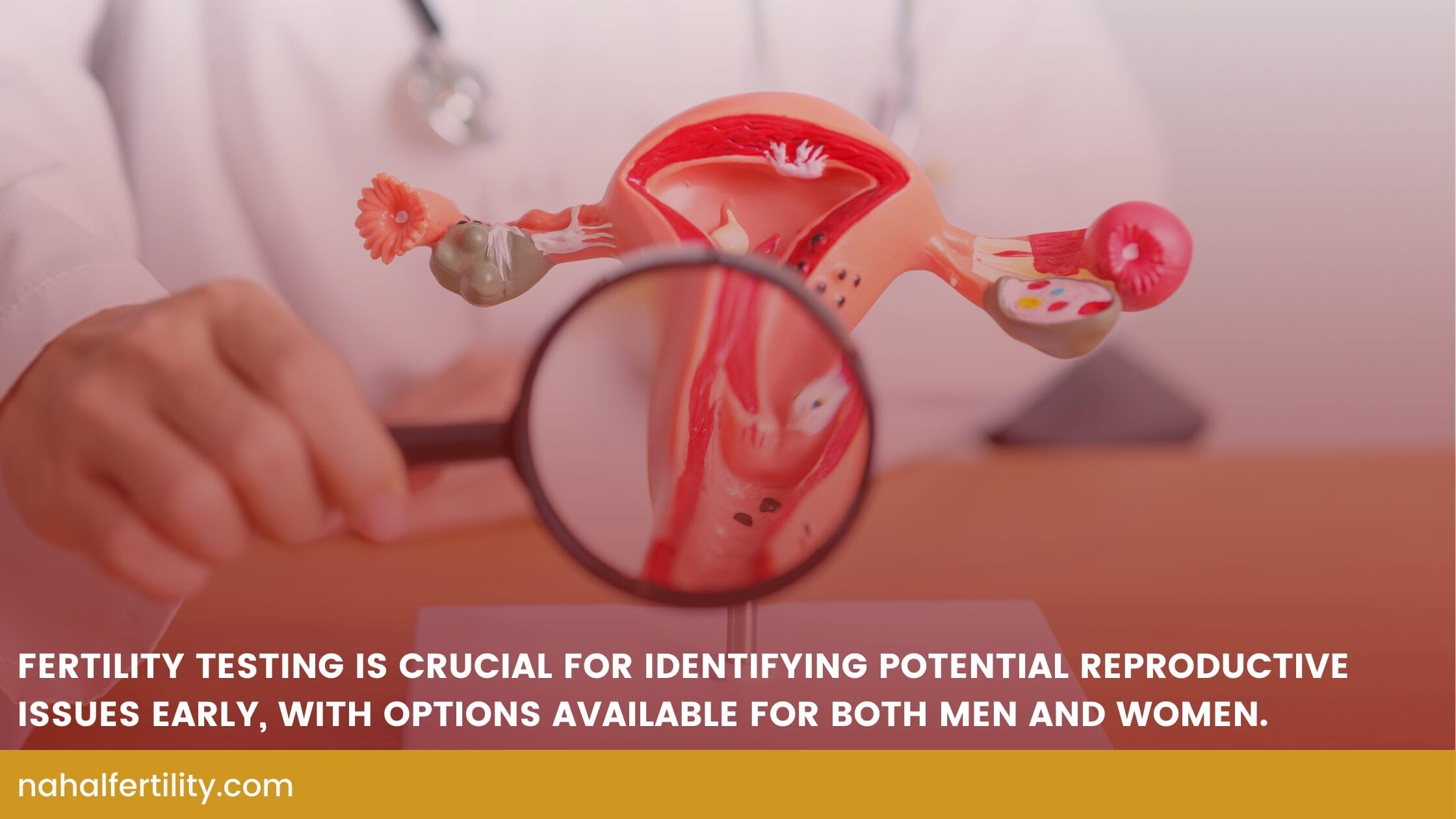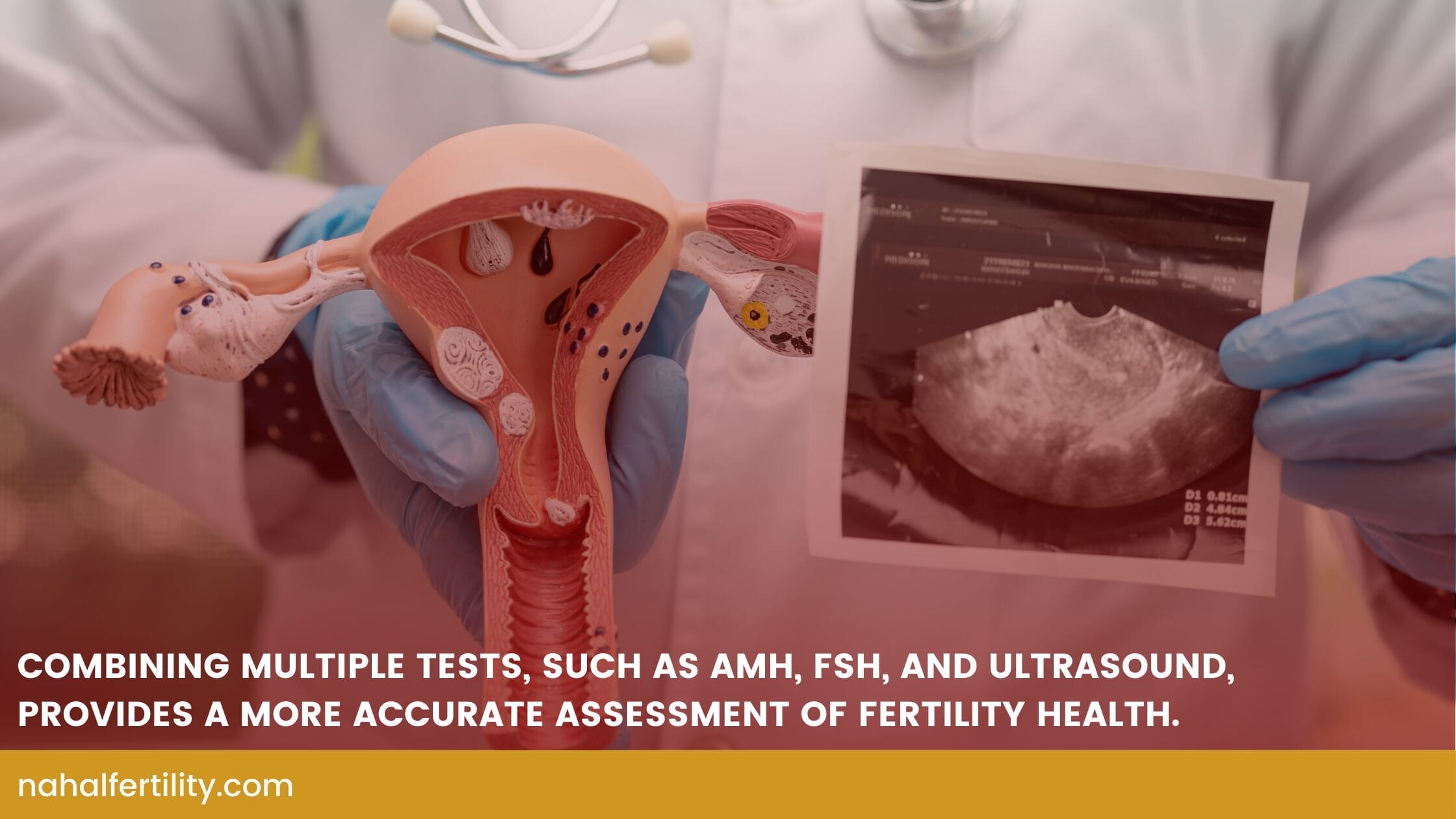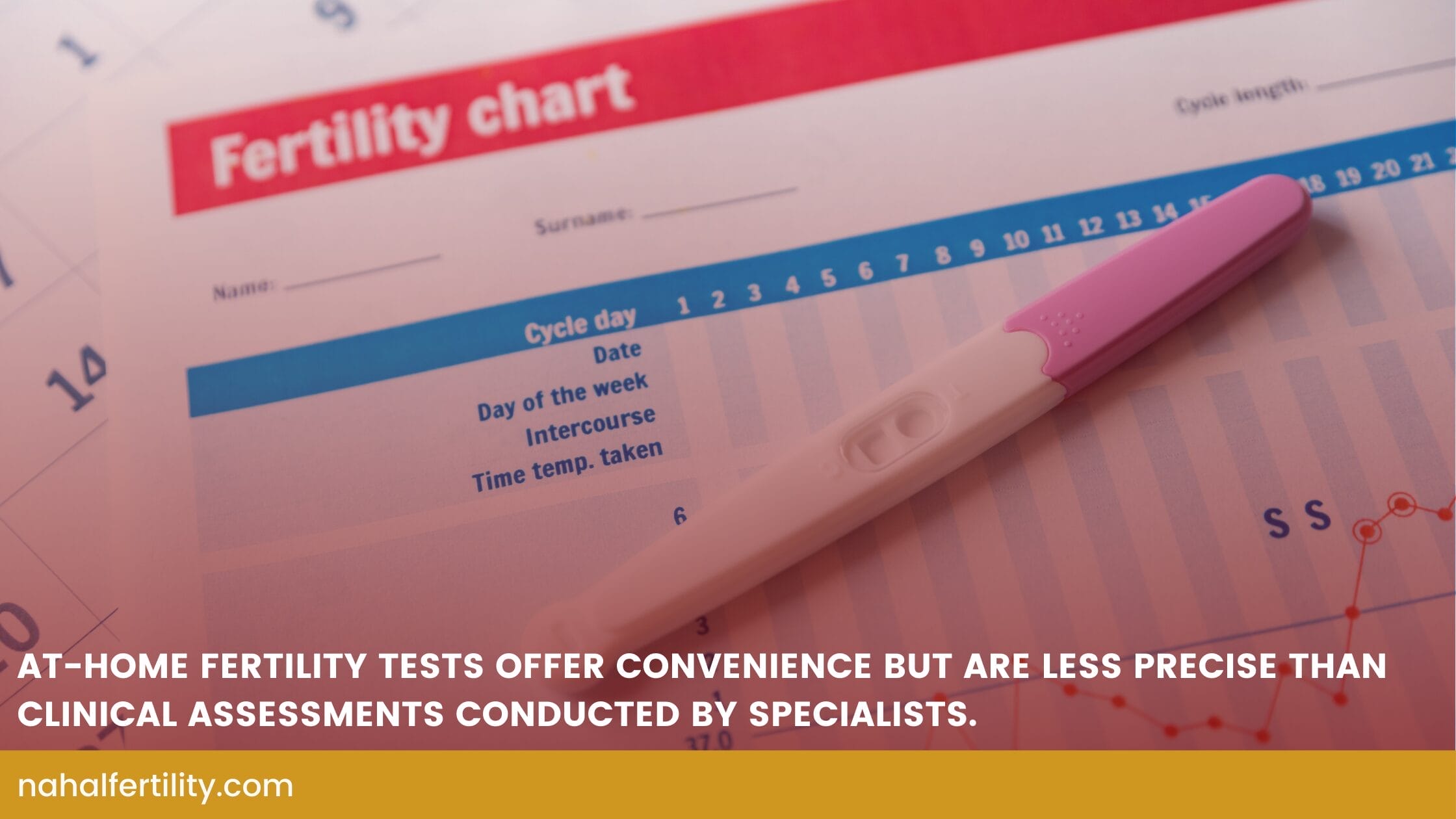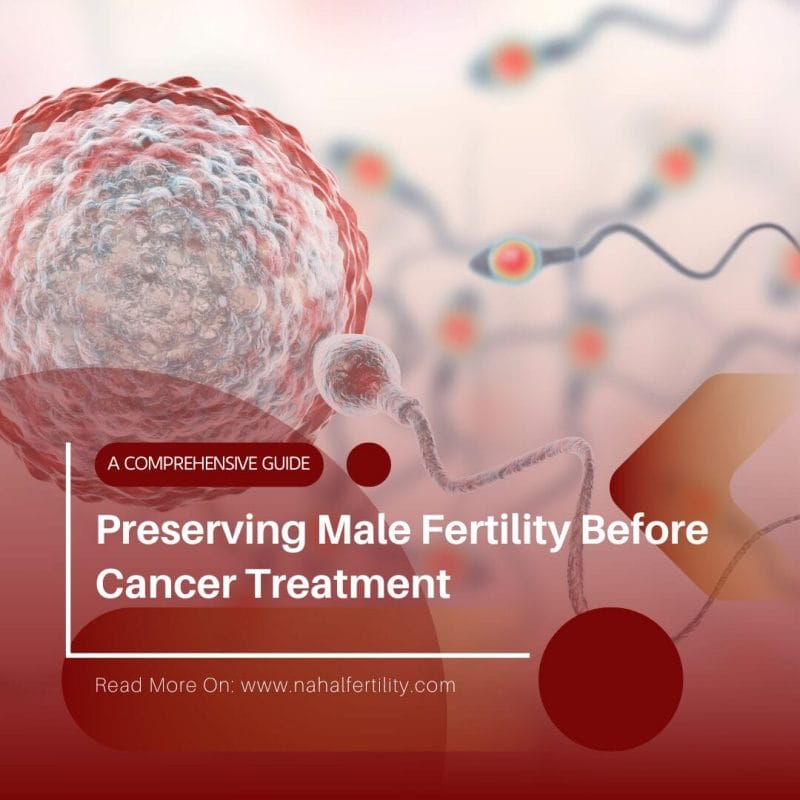Are you ready to start your journey toward parenthood but unsure about your fertility status? You’re not alone. Fertility testing has become an essential tool for couples planning their families, providing valuable insights into reproductive health. Let’s explore the world of fertility testing and uncover what you need to know to take control of your reproductive future.
What Exactly Is Fertility Testing?
Fertility testing involves a combination of medical evaluations to assess reproductive health and identify potential obstacles to conception. Tests are tailored to the patient’s unique circumstances, taking age, medical history, and lifestyle factors into account.
Why Fertility Testing Matters
According to a study published in the Journal of Assisted Reproduction and Genetics, approximately 15% of couples (one in every six people of reproductive age worldwide) experience infertility (Source). Understanding the factors influencing fertility can improve the chances of successful conception.
Fertility testing helps diagnose potential issues early, giving patients a clearer path toward effective treatments. By identifying hormonal imbalances, structural concerns, or lifestyle factors impacting fertility, testing empowers patients with actionable insights.
Testing is particularly vital for women who are experiencing irregular menstrual cycles, previous miscarriage, or known reproductive health conditions. Similarly, for men with concerns about sperm quality or previous infections, early testing can reveal crucial insights that allow for targeted treatment.
Understanding Infertility
Infertility is defined as the inability to conceive after one year of regular, unprotected intercourse for individuals aged less than 35 (or six months if over age 35). Both men and women can experience fertility issues equally, making comprehensive testing essential.

Fertility Testing for Women
What Are the Common Infertility Causes in Women
Conditions such as polycystic ovary syndrome (PCOS) and endometriosis are known to impact ovulation and egg quality significantly, regarding to the the American Journal of Obstetrics and Gynecology (Source). Additionally, fallopian tube blockages, uterine fibroids, and hormonal imbalances can further reduce fertility.
Hormonal Fertility Tests For Women
Fertility Hormones assessments are crucial in diagnosing potential imbalances affecting ovulation or egg production. The most common hormone tests include:
- Follicle-Stimulating Hormone (FSH): This test assesses ovarian reserve by measuring FSH levels. Elevated FSH levels may indicate diminished egg quality or reduced ovarian reserve.
- Luteinizing Hormone (LH): This hormone triggers ovulation, and its levels are commonly tested to assess ovulation timing.
- Anti-Müllerian Hormone (AMH): This hormone reflects the remaining egg supply and helps assess fertility potential.
- Estradiol: Elevated or reduced estradiol levels can indicate ovarian dysfunction or menopause onset.
Studies published in Human Reproduction have shown that AMH tests provide a reliable assessment of ovarian reserve, though combining multiple tests offers the most accurate insights (Source).

Imaging Fertility Tests For Women
Visual assessments are vital in fertility testing as they provide detailed insights into reproductive organ health. A transvaginal ultrasound is commonly performed to assess the uterus, ovaries, and follicles, ensuring no abnormalities are obstructing conception. A hysterosalpingogram (HSG) is used to check for blockages in the fallopian tubes, which are often linked to previous infections or scarring.
Other Important Infertility Tests
If further investigation is required, doctors may recommend:
- Ovarian Reserve Testing: This combines hormonal testing with ultrasound imaging to evaluate egg supply.
- Endometrial Biopsy: This procedure assesses the uterine lining’s readiness to support embryo implantation, which is critical for a successful pregnancy.
Fertility Testing for Men
What Are the Common Infertility Causes in Men
According to the National Library of Medicine, low sperm count, poor sperm motility, and abnormal sperm morphology contribute to roughly 30-40% of infertility cases (Source). Factors such as lifestyle habits, stress, and genetics often play a role in reducing sperm quality.
Semen Analysis
Semen analysis is considered the gold standard for male fertility assessment. The World Health Organization (WHO) outlines semen analysis criteria that evaluate sperm count, motility, and shape (Source). Results provide valuable insights into sperm fertility health and reveal potential issues affecting conception.
Hormonal Fertility Tests For Men
In cases of low sperm count or poor motility, hormonal tests may be recommended. These include:
- Testosterone Levels: Crucial for sperm production and overall reproductive function.
- Follicle-Stimulating Hormone (FSH): FSH helps regulate sperm production, and abnormal levels may indicate impaired sperm development.
Advanced Male Fertility Tests
For individuals with unexplained infertility, specialists may recommend:
- Fertility Genetic Testing: Identifies chromosomal issues affecting sperm production or quality.
- Testicular Biopsy: A surgical procedure where a small sample of testicular tissue is examined for sperm presence and health.
- Sperm DNA fragmentation test: A laboratory test which looks at the level of fragmented DNA in a semen sample.
- Testosterone level test
- Follicle-stimulating hormone (FSH) test
At-Home vs. Clinical Fertility Testing: Pros and Cons
The rise of at-home fertility tests has made fertility screening more accessible. While at-home tests can provide initial insights, they are less comprehensive or accurate than clinical testing. Clinical tests offer in-depth evaluation with professional interpretation, ensuring a more complete understanding of your fertility status. At-home infertility tests offer privacy and convenience, but they have limitations.
Pros of at-home fertility testing:
- Convenient and private
- Generally more affordable
- Can provide initial insights
Cons of at-home fertility testing:
- Limited scope compared to clinical tests
- May not be as accurate
- Lack of professional guidance in interpreting results
How Reliable Are Fertility Tests?
The reliability of fertility tests depends on various factors, including the timing of the test, lifestyle factors, and overall health. Hormonal tests, for example, are most accurate when performed at specific points in the menstrual cycle. Similarly, semen analysis results may vary based on recent illnesses, medications, or environmental factors.

When Should You Consider Fertility Testing?
Timing is crucial when it comes to fertility testing. Here are some guidelines to help you decide when to take the plunge:
- If you’re under 35 and have been trying to conceive for a year without success
- If you’re over 35 and have been trying for six months
- If you have known risk factors for infertility
- If you’re considering fertility preservation
Preparing for Fertility Tests: What to Expect
Preparing for fertility tests can improve accuracy and provide a smoother experience. Steps like tracking your menstrual cycle, avoiding alcohol or smoking, and following medical advice closely can make a significant difference. Patient education and preparation have been shown to improve overall fertility testing experiences.
Once you have your fertility test results, it’s essential to work with a fertility specialist to interpret the findings and develop a personalized plan. Fertility treatment plans based on comprehensive testing led to significantly higher success rates compared to standard approaches.
Remember, fertility testing is just the first step in your reproductive journey. With the right information and support, you can make informed decisions about the next steps, such as intrauterine insemination (IUI), in vitro fertilization (IVF), intracytoplasmic sperm injection (ICSI), or other treatment options.
If you’re ready to take control of your fertility journey, schedule a consultation with the specialists at Nahal Fertility Clinic. Our compassionate team is here to guide you every step of the way, providing personalized care and expert advice to help you achieve your family planning goals.
Conclusion
Fertility testing offers crucial insights into your reproductive health, empowering you to make informed family planning decisions. Whether considering home or clinical testing, expert guidance ensures clarity and confidence.
FAQ
Fertility testing involves a combination of hormonal tests, imaging studies, and semen analysis for men. The specific tests depend on individual circumstances and are best determined by a fertility specialist.
Some fertility tests are covered by OHIP, but coverage can vary. It's best to check with your healthcare provider or OHIP directly for the most up-to-date information.
Most home pregnancy tests can detect pregnancy about 10-14 days after fertilization. However, for the most accurate results, it's best to wait until after you've missed your period.
Fertility testing typically involves blood tests to check hormone levels, imaging studies like ultrasounds, and semen analysis for men. The exact tests depend on individual circumstances and are determined by a fertility specialist.
While home male fertility tests can provide some initial insights, they are generally less comprehensive and accurate than clinical tests. For a thorough evaluation, it's best to consult with a fertility specialist.





